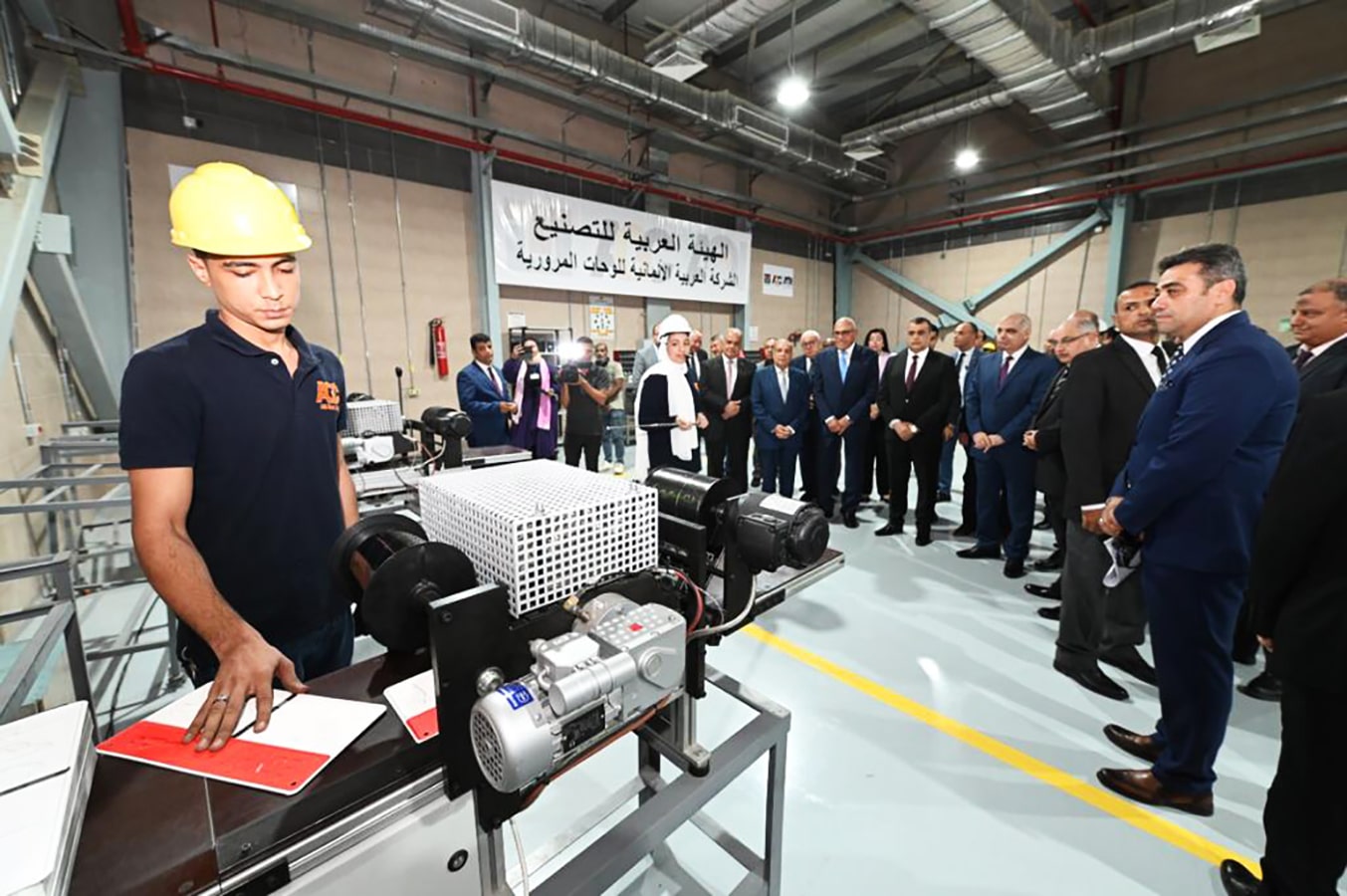TÖNNJES opens high-techfactory in Cairo
- Grand opening in the Egyptian capital
- Politicians and the press gain insight into license plate production
- Successful implementation of the agreement signed as part of the “Compact with Africa 2019”
Cairo, October 2022.
Egypt launches its local license plate production: On October 16, the new production facility in Cairo officially opened, where all of the country’s license plates will be manufactured in the future. The high-tech factory is a cooperation between the international market leader for electronic vehicle identification, TÖNNJES International Group GmbH from northern Germany, and the Arab Organization for Industrialization (AOI) from Egypt. The joint venture produces three to four million license plates a year locally for the Egyptian Ministry of the Interior.
Presentation for politicians and the press
“We are proud that we can now present our latest joint venture to the public and provide an insight into our work in Egypt,” explains Markus Müller, Managing Director at TÖNNJES. In addition to ambassadors from neighboring countries such as Mali, high-ranking Egyptian politicians General Mohamed Salah El Din, Minister of State for Military Production, his predecessor General Mohamed Ahmed Morsi and Dr. Eng. Mohamed Abdel Karim, President of the General Authority for Industrial Development, leads the way to the opening ceremony. The German embassy was represented by the head of the economic department, Alexis Below. After a speech by Major General Ing. Mokhtar Abdelativ, President of the AOI, the guests were able to learn more about the production of the license plates during a tour of the halls. General Abdelativ praised the good cooperation with the German partner company and the advantages that will result from the technology transfer in the future in front of the numerous representatives of the press. Finally, Mirjam Weber, Sales Manager at TÖNNJES, demonstrated the vehicle identification system that is implemented with the RAIN RFID license plate IDePLATE from TÖNNJES.
More flexibility and speed through technology – made in Germany.
Egypt relies on the expertise of TÖNNJES. The new production facility covers the African country’s current license plate requirements and operates independently and flexibly. As both AOI and TÖNNJES expect the market to grow, the joint venture is designed for larger production capacities and offers opportunities for expansion. “Fully automated production also ensures high quality and efficiency. We can largely rule out errors in the manufacturing process. Material losses remain low,” explains Mirjam Weber.
In the new factory, which is located on the AOI premises, TÖNNJES uses its own IDeROBOT embossing robots, which emboss the license plates fully automatically. TÖNNJES has already successfully put the IDeROBOTs into operation in other production facilities in Italy, Dubai and the Philippines. In addition, 60 jobs will be created in Cairo. “This will make Egypt less dependent on imports and create jobs,” continues Mirjam Weber.
Kick-off three years ago: Cooperation under the G-20 agreement
The joint venture in Egypt was launched when the companies involved signed a cooperation agreement as part of the “Compact with Africa”. In November 2019, representatives of African countries and the G20 countries met at the German Chancellery to discuss cooperation and investment in Africa. An approach that is nothing new for TÖNNJES: the market leader for electronic vehicle identification (EVI) operates in over 50 locations worldwide with joint ventures that strengthen the local economy and ensure reliable deliveries.
In addition to the embossing robot IDeROBOT, the Delmenhorst-based company is developing its own RFID license plate IDePLATE and the windscreen sticker IDeSTIX. The license plates have RAIN RFID chips with a unique identification number that can be read by authorities in stationary and moving traffic and compared with a vehicle database. The technology enables smart mobility applications such as access control or toll systems.

